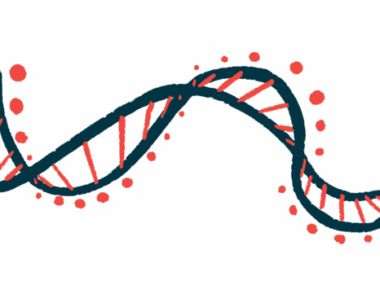Influenza, COVID-19 are trigger events for aHUS in man, 19
Respiratory infections lead to separate episodes in case of patient in Japan
Written by |

Two infections — influenza followed by COVID-19 — were trigger events for separate episodes of atypical hemolytic uremic syndrome (aHUS) in a young man in Japan, a case study reports.
The researchers noted that the man’s “[two] episodes of recurrent aHUS following respiratory tract infections” resolved without the need for standard treatments.
Still, this report “[highlights] that influenza and COVID-19 infections can be an environmental trigger to develop aHUS” in certain patients, according to the team.
The case details were described in “C3 p.Asp1115Asn Variant-associated Atypical Hemolytic Uremic Syndrome with Spontaneous Remission Triggered by Influenza and COVID-19,” a study published in the journal Internal Medicine.
aHUS is caused by the abnormal activation of the complement cascade, part of the immune system that normally helps to clear microbes from the body. Complement dysfunction can lead to blood clotting in small blood vessels, particularly those in the kidneys, resulting in damage.
Trigger event often needed for aHUS to manifest
Most aHUS patients carry mutations in genes that regulate complement function. Even so, genetic defects don’t necessarily mean that a person will develop aHUS. In many cases, a triggering event, such as an infection, a coexisting autoimmune disease, certain medications, or pregnancy, is also needed for the disease to manifest.
In this report, a team led by researchers at Tottori University Hospital described the case of a 19-year-old man who experienced recurrent aHUS episodes triggered by subsequent infections with influenza A and SARS-CoV-2, the virus that causes COVID-19.
After seeking treatment for symptoms that included headache, nausea, malaise, and a fever, the man tested positive for an influenza type A infection and was treated with antiviral medications. A week later, he developed hematuria, or blood in the urine.
Two weeks after symptom onset, he was admitted to the hospital due to kidney problems and anemia — a condition typically characterized by low red blood cell counts or low hemoglobin levels. A physical examination showed paleness in the palpebral conjunctiva, or the lining of the eyelids, which is a sign of anemia. Lab tests confirmed anemia and kidney dysfunction, and showed the man had low levels of platelets, the small cell fragments that help blood clot.
A blood smear analysis revealed anemia with fragmented red blood cells (schistocytes), a sign of thrombotic microangiopathy (TMA). TMA is a group of disorders, including aHUS, marked by the formation of blood clots in small blood vessels and leading to red blood cell destruction and organ damage. A biopsy confirmed kidney injury with signs of blood clots.
Additional tests ruled out autoimmune conditions, infectious diseases, and thrombotic thrombocytopenic purpura, another TMA caused by low activity of an enzyme called ADAMTS13.
Genetic analysis also confirmed disease-causing mutation in patient
While all signs and symptoms pointed to aHUS, a genetic analysis confirmed the presence of a disease-causing mutation known as p.Asp1115Asn. This mutation occurred in a gene that provides instructions for making a complement protein called C3.
“This clinical course is consistent with previously reported cases of aHUS associated with C3 variants in Japan,” the researchers wrote.
The man’s platelet counts gradually improved without treatment, and he was discharged without complaints. Two months later, his kidney function and platelet counts had improved.
Infections, particularly influenza virus and COVID-19, are the most commonly implicated triggers of aHUS. … [However,] the mechanisms by which these infections trigger aHUS in susceptible individuals are complex. … Further investigation … would accelerate the establishment of therapeutic strategies.
Seven months after he was discharged from the hospital, the man developed COVID-19. A few days later, there was blood in his urine. Lab tests again found anemia, low levels of platelets, and kidney dysfunction, and a biopsy showed milder signs of kidney damage.
The patient was diagnosed with recurrent aHUS and prescribed an antiviral therapy.
Without intensive treatment, his platelet counts and kidney function improved, and he was discharged from the hospital, per the report.
The researchers noted that “infections, particularly influenza virus and COVID-19, are the most commonly implicated triggers of aHUS.”
However, “the mechanisms by which these infections trigger aHUS in susceptible individuals are complex and have not been fully elucidated,” the team wrote. “Further investigation of the [disease mechanisms], relevant genetic profiles, and environmental triggers would accelerate the establishment of therapeutic strategies.”







